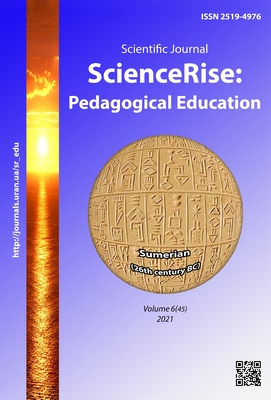Peculiarities of the nostrification of higher education diplomas
DOI:
https://doi.org/10.15587/2519-4984.2021.248241Keywords:
nostrification of diplomas, higher education, educational programmes, Bologna process, experience, educational process, academic mobility of students, students' exchange programme, labour market, workflowAbstract
This article examines the problems of nostrification of foreign diplomas in Ukraine and the recognition of educational programmes, taken by graduates of foreign universities. Ukraine today is a wide market of professions, where our citizens with foreign diplomas and foreigners, who were educated at home, find jobs. The state is also guided by the educational process, which takes place in European countries and has its own characteristics and traditions. Work on universalization of education should have a positive impact on faster and better implementation of programmes of exchange of scientific and pedagogical experience between countries, academic mobility of students, postgraduates, teachers, etc. The article also mentions the traditional exchange of students and professors, the exchange of scientific achievements between universities in different countries, building mutually beneficial partnerships, which is why Ukrainian universities have to focus on the European labour market.
The article also discusses the peculiarities of the document flow for nostrification of diplomas, lists the main documents and reveals the problems, associated with their processing. The research problem has an interdisciplinary status, because it raises problems of documentation work, recognition of diplomas and problems, faced by graduates of foreign universities
References
- Rashkevych, Y. (2018). The Bologna process: history, current state and perspectives. Educational Analytics of Ukraine, 3, 5–16. doi: https://doi.org/10.32987/2617-8532-2018-3-5-16
- Artomov, I. V., Studeniak, I. P., Holovach, Y. Y., Hus, A. V. (2015). Innovatsii u vyshchii osviti: vitchyznianyi i zarubizhnyi dosvid. Uzhhorod: PP «AUTDOR-ShARK», 360.
- Krechetova, V. A. (2018). Vyshcha shkola yak chynnyk formuvannia hromadianskoi identychnosti studentiv u suchasnii Ukraini. Zaporizhzhia, 21.
- Mokhnatiuk, I. O. (2010). Osoblyvosti suchasnoi osvity: sotsiokulturno-tsinnisnyi vymir. Filosofski problemy humanitarnykh nauk, 19, 165–170.
- Drakokhrust, T. V. (2017). Features of legal regulation of legislation of Ukraine to protect the rights of foreigners and stateless person. Yurydychnyi naukovyi elektronnyi zhurnal, 1, 190–193.
- The European Higher Education (1999). Joint Declaration of the European Ministers of Education. Bologna. Available at: https://www.eurashe.eu/library/bologna_1999_bologna-declaration-pdf/
- Standards and Guidelines for Quality Assurance in the European Higher Education Area (ESG) (2015). Available at: https://www.enqa.eu/wp-content/uploads/2015/11/ESG_2015.pdf
- Apostyl na dokumenty pro osvitu. Informatsiino-imidzhevyi tsentr, Derzhavne pidpryiemstvo Ministerstva osvity i nauky Ukrainy. Available at: https://apostille.in.ua/ua/
- Berezovska, S. V. Nostryfikatsiia. Yurydychna entsyklopediia. Available at: https://leksika.com.ua/19740122/legal/nostrifikatsiya
- Vyznannia inozemnykh dokumentiv. Ministerstvo osvity i nauky Ukrainy. Available at: https://mon.gov.ua/ua/ministerstvo/poslugi/viznannya-inozemnih-dokumentiv
Downloads
Published
How to Cite
Issue
Section
License
Copyright (c) 2021 Serhii Kovalenko

This work is licensed under a Creative Commons Attribution 4.0 International License.
Our journal abides by the Creative Commons CC BY copyright rights and permissions for open access journals.
Authors, who are published in this journal, agree to the following conditions:
1. The authors reserve the right to authorship of the work and pass the first publication right of this work to the journal under the terms of a Creative Commons CC BY, which allows others to freely distribute the published research with the obligatory reference to the authors of the original work and the first publication of the work in this journal.
2. The authors have the right to conclude separate supplement agreements that relate to non-exclusive work distribution in the form in which it has been published by the journal (for example, to upload the work to the online storage of the journal or publish it as part of a monograph), provided that the reference to the first publication of the work in this journal is included.








